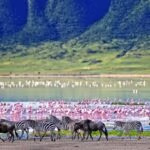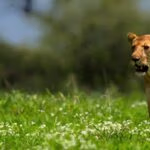Malaria in Tanzania: Do You Need Pills for Safari, Kilimanjaro & Zanzibar?
Your complete, traveler-friendly health guide from the Serengeti Clarity team.
Planning a safari in Tanzania, a Kilimanjaro climb, or a Zanzibar getaway? One of the most common questions travelers ask is:
“Do I need malaria pills for my trip?”
The short answer: Tanzania is a malaria-risk country, but with the right preparation — including medication, prevention strategies, and proper guidance — you can enjoy your adventure safely and confidently.
At Serengeti Clarity, we ensure every guest receives accurate, up-to-date malaria information and has access to our dedicated travel doctor for personal health consultations whenever needed.
Let’s break everything down clearly — region by region.
Understanding Malaria in Tanzania
Malaria exists in many low-elevation areas across Tanzania, including most safari destinations and coastal regions. However, the risk varies by:
- Location
- Elevation
- Season
- Your accommodation type
- Your personal health precautions
Key Facts You Should Know
- Tanzania records an estimated 5.5 million malaria cases annually among the local population.
- Travelers who follow medical advice and prevention measures face a very low risk — around 1 in 300.
- The most common malaria strain is Plasmodium falciparum, the most serious type.
- With proper preparation, malaria is highly preventable.
Do You Need Malaria Pills? A Breakdown by Destination
1. Safari Parks (Serengeti, Tarangire, Ngorongoro, Lake Manyara)
✔️ Malaria pills are strongly recommended.
These parks lie at lower elevations where mosquitoes are active, especially during sunrise and sunset — prime safari game-drive hours.
Even though many lodges have mosquito nets and good prevention controls, medication + bite prevention is the safest combination.
2. Zanzibar Island
✔️ Malaria pills are recommended.
Zanzibar has year-round malaria presence. While many beach resorts have excellent mosquito-control systems, coastal humidity allows mosquitoes to thrive.
Taking medication ensures complete peace of mind.
3. Mount Kilimanjaro
✔️ Medication recommended for days before and after the climb.
❌ No malaria risk on the mountain itself.
At altitudes above 1,800+ meters, temperatures are too cold for malaria-carrying mosquitoes. However, climbers often sleep at lower elevations before and after the trek — where the risk exists.
Real Traveler Peace of Mind: A Common Story
Many travelers worry about malaria before coming to Tanzania — and we understand that.
One of our recent guests shared:
“We were anxious about malaria until Serengeti Clarity guided us step-by-step. Their doctor advised the right medication, the lodges all had mosquito nets, and our guide reminded us daily about prevention. We enjoyed every moment without stress.”
You deserve the same confidence and clarity.
How to Protect Yourself: The Complete Strategy
1. Take Anti-Malaria Medication
Popular options (your doctor will advise):
- Malarone (Atovaquone-Proguanil)
- Doxycycline
- Mefloquine
2. Prevent Mosquito Bites
- Use mosquito repellent with DEET or Picaridin
- Wear long sleeves and pants in neutral/light colors
- Avoid dark colors that attract mosquitoes
- Sleep in rooms with AC, screened windows, or bed nets
- Avoid outdoor lights at night
3. Consider Seasonal Risks
Higher risk:
- March to May (long rains)
- November to December (short rains)
Lower risk does not mean zero risk — still follow normal precautions.
How Serengeti Clarity Keeps You Safe
This is where we stand out.
✔️ Access to Our Dedicated Safari Doctor
All guests may receive:
- Pre-trip medical consultation
- Medication guidance
- Personalized malaria risk evaluation
- Advice for families, seniors, and guests with health conditions
Available via WhatsApp, email, or direct call — whenever you need it.
✔️ Carefully Selected Accommodations
We only partner with lodges and hotels that provide:
- High-quality mosquito nets
- Air-conditioned rooms
- Safe, well-maintained sleeping environments
- Regular pest-control practices
✔️ Guides Trained in Health Safety
Our guides help with:
- Advising proper clothing during game drives
- Reminding guests during peak mosquito times
- Keeping vehicle doors and windows secure
- Carrying essential first-aid kits
✔️ 24/7 Guest Support Throughout Your Trip
We monitor all conditions and respond instantly if you have any medical questions or concerns.
Safari, Kilimanjaro, or Zanzibar — We Help You Prepare for All
Whether you’re planning:
🦁 A Serengeti Great Migration safari
🗻 A Kilimanjaro summit adventure
🏝️ A Zanzibar beach escape
🛩️ …or all three —
Serengeti Clarity ensures you travel safely, confidently, and with expert-backed health guidance every step of the way.
Ready for a Safe, Worry-Free Adventure?
Your dream trip should be full of wildlife, sunsets, mountain views — not health worries.
When you travel with Serengeti Clarity, you get:
- Expert itinerary planning
- Personalized malaria guidance
- Access to our dedicated safari doctor
- Safe accommodations
- A caring team that treats your health as a top priority
Before your trip, we kindly recommend checking with your doctor to confirm whether taking malaria prophylaxis is necessary for you personally. Medical needs can vary from guest to guest, and your healthcare provider will give the most accurate advice based on your health history and travel plans.
Your Tanzania adventure awaits — and we’re here to make it safe, joyful, and unforgettable.




